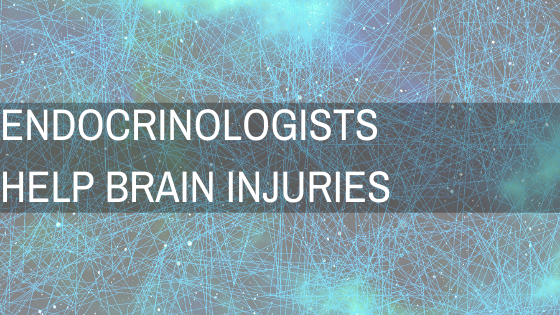No matter what you do to try and recover from your concussion, nothing seems to work. It may for a time, but then you’ve taken a few steps back again. What is going on? I mean, you just hit your head. People do it all the time. Why isn’t anything working?
This is how I felt for a long time. It had been two and a half years since my concussion. I had been through a year of therapy. I progressed a bit, but nothing seemed to stick and make noticeable difference. What was I missing?
I was sitting in a group session with some other TBI (Traumatic Brain Injury) patients. We were discussing how things were going for each of us. Then someone asked our Occupational Therapist about this Dr. Komer guy. Someone else spoke up and said she had been to him and notice great advancement in her recovery. My ears perked up, I wrote the name down, and did some research as soon as I got home.

This doctor is an OBGYN. Why would I be seeing that kind of doctor for a brain injury? I learned that even though the pituitary isn’t actually in your brain, it is affected when you have a concussion. Your hypothalamus and your pituitary can both take a hit.
Now, Dr. Komer’s specialty doesn’t normally deal with this. But his whole family has had concussions and his daughter died of a brain injury, so it is close to his heart. Since he studies hormones and has a background in sports medicine, he used his passion to drive him to help others with these injuries. However, you can see an Endocrinologist for this help.
An Endocrinologist studies the endocrine system, which means your hormones. The pituitary is the storehouse for your hormones. When this is affected, it sends a chain reaction into many areas of your body. It can take weeks, months, or even years to notice the changes. But depending on the severity of your injury, it will show up at some point.
Often times, your thyroid can be triggered by this. Your sexual reproduction system can be lacking and your metabolism skewed. Below are some symptoms that are typical signs your hormones have been tampered with:
- exhaustion
- headaches
- extreme thirst
- dehydration
- weight loss or gain
- cold intolerances
- menstrual imbalances
- sexual dysfunction
- low blood pressure
You should seek an Endocrinologist’s help if any of these present themselves and linger after a concussion.
Your own family doctor may not pick up on this. I had random symptoms creep up since my concussion that he could not explain. I was drinking about ten full glasses of water a day. My mouth still felt dry and I was still really thirsty by the end of the day. He tested me for a few things, but nothing flagged.

Then, I randomly experienced heart palpitations. I felt really light headed when I went from lying to sitting and sitting to standing. He likened it to low blood pressure. Another doctor mentioned that migraines can trigger it.
I was having weird things happen since my concussion that no one could explain. Eventually, they would ease off a bit and then something else would happen. After I saw Dr. Komer, these issues have all subsided.
I will warn you that the process isn’t exactly fun. It may require you to change some stuff. For example, I now take nine different supplements and medications. He has also put me on the Keto diet. This was drastic in my mind and something I did not want to do. My blood work seemed fine to my family doctor, so I didn’t understand the drastic changes.
However, the specialist was able to explain why. If you’ve ever looked at what is considered a “normal” range for blood work, there is a very wide range to fall under. For example, iron or ferratin has a normal range of 5-250. My iron level was at 19. I had struggled with iron when I was younger and was down to a level of four. My doctor at the time said that the only other person she’s seen with it that low was in a coma! So, I knew my iron should be closer to at least 80, but since it was in the normal range to my family doctor, he dismissed it.

The Endocrinologist will be aware of these gaps and will be looking for signs that your hormones are affected. He or she will be able to monitor you and pick up on the weird, unexplainable symptoms you are facing.
Once he can get your hormones rebalanced, this will allow for quicker progress with your other therapies. In turn, this will give you a better chance at recovery.
I will warn you that this will take time. You won’t go on meds and/or supplements and see a drastic difference right away. It can take months to get your levels right and will take a bit more time to see the affects of everything kicking in. Give your doctor and your brain grace to do what they need to.
At least you can have hope that life will get better. I have found that you have to be your biggest advocate. Keep searching for solutions and therapies that work. I would recommend starting with an Endocrinologist. Then, depending on what’s needed, seeking other therapies like vision, speech, and physio after that. It’s okay if you’ve done these other ones first. Take the principles you’ve learned and keep practicing them. Eventually they’ll all click together and change will happen.
Since doctors’ offices are currently limited or closed due to COVID-19, take some time to research different Endocrinologists in your area. Check reviews and then ask for a referral when you can. Don’t get discouraged if it takes a while to get into one. Trust me, it’ll be worth it when you do.




